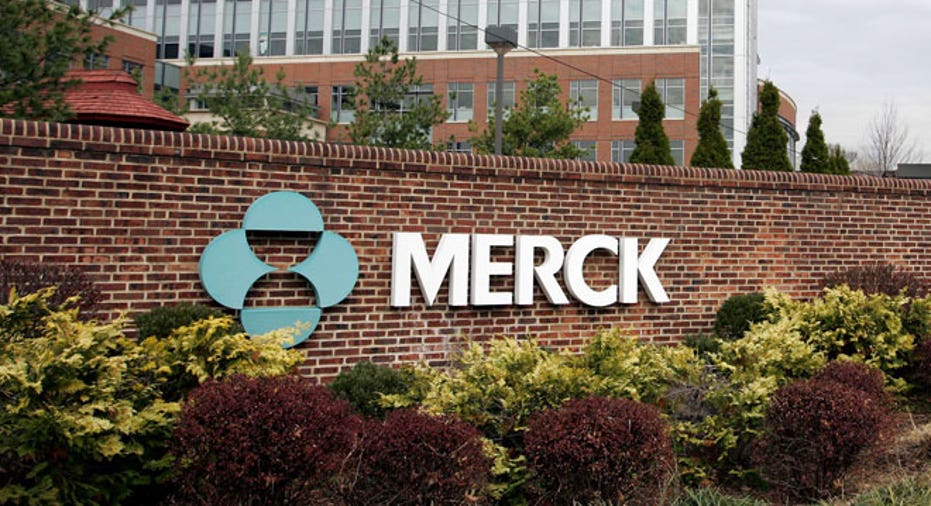Merck In Final Talks To Sell Consumer Unit For Near $14 Billion - Sources

Merck & Co Inc is in the final stages of selling its consumer healthcare unit for close to $14 billion, with Bayer AG and Reckitt Benckiser Group Plc among final contenders to clinch a deal as soon as next week, people familiar with the matter said.
Germany's Bayer and British consumer products giant Reckitt have emerged as frontrunners to win the auction after each offering roughly $13.5 billion for the Merck consumer unit, best known for Coppertone sunscreen and Claritin allergy medicine, the sources said.
Both bidders are very keen to buy the asset and the price tag could go higher in the final days, one person added. All the people asked not to be named because the matter is not public.
Representatives for U.S. drugmaker Merck, as well as Bayer and Reckitt, declined to comment.
The sale would be the latest in a wave of healthcare deals in recent days, including Zimmer Holdings Inc's $13.35 billion acquisition of orthopaedics rival Biomet Inc and the agreement between Novartis AG and GlaxoSmithKline Plc to trade more than $20 billion worth of assets, with Eli Lilly and Co buying Novartis' animal health business for $5.4 billion.
At the same time, Valeant Pharmaceuticals International Inc and Bill Ackman are locked in a $47 billion battle for Allergan Inc; Mylan Inc is seeking to buy Sweden's Meda AB for around $9 billion including debt; and there is talk of a $100 billion bid for AstraZeneca Plc from Pfizer Inc.
RECORD HEALTHCARE M&A
The deal surge has driven healthcare M&A volumes to $153.3 billion so far this year, the highest year-to-date level since Thomson Reuters has started tracking data. Pharmaceutical deals have accounted for 71 percent of overall healthcare deals.
The Merck auction also drew interest from several other healthcare and consumer giants including Procter & Gamble Co, Boehringer Ingelheim, Novartis and Sanofi SA, people familiar with the matter have said.
The impending sale underscores drugmakers' efforts to bolster their best businesses and exit weaker ones as the drug industry contends with healthcare spending cuts and generic competition.
Reckitt owns over-the-counter medicines including Mucinex and Nurofen and the international rights for the Scholl foot care business. Its chief executive told Reuters in September that Reckitt aimed to be a major player in consumer healthcare and had the firepower to do sizeable deals.
Germany's Bayer already has a strong portfolio of consumer products including pain medication Aleve and antacid Alka-Seltzer, but is looking at deals to expand the business further. In 2012, Bayer lost a bidding war with Reckitt for Schiff Nutrition International Inc, which agreed to sell to the British consumer products group for $1.3 billion.
Over-the-counter health products are attractive to companies like Reckitt and Bayer because they tap into consumer and demographic trends such as aging populations, ballooning healthcare costs and more interest in wellness.
They also enjoy brand loyalty, fat margins and strong growth - and because of that they don't come cheap.
Merck is looking to sell its consumer unit as it is not a leader in the space and holds only around 1 percent of the market. In exploring alternatives for the consumer business, Merck is following in the footsteps of other drugmakers such as Pfizer, which has created shareholder value by separating non-core business units.
Pfizer sold its infant-nutrition business to Nestle SA for $11.9 billion in 2012 and last year spun off its animal health unit as a separate publicly traded company called Zoetis Inc.



















